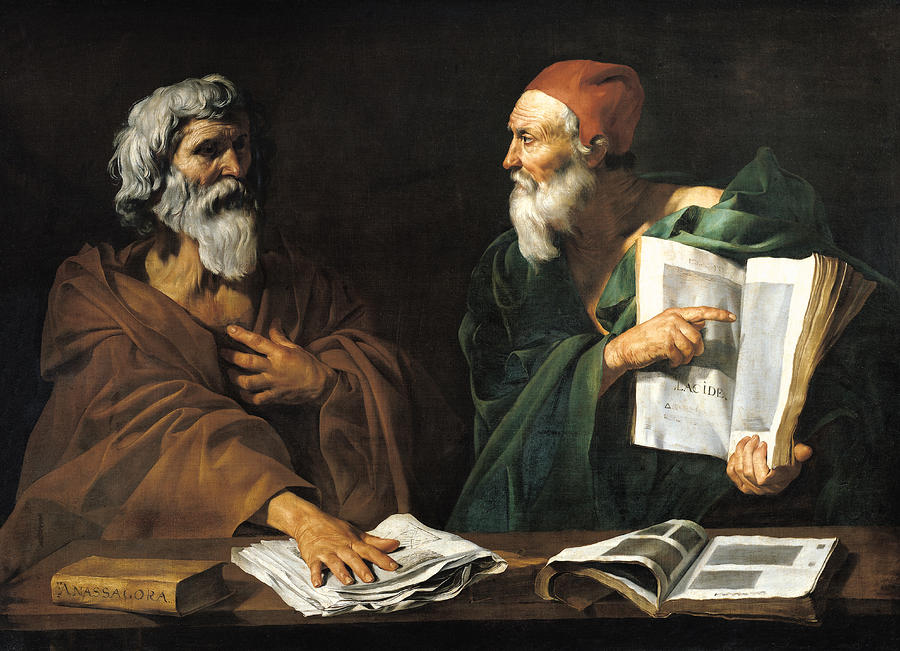Using everyday problems as the beginning of philosophising: A novel interpretation of seeing everyday challenges
*This post or essay is a reworked version of an article I am writing for a peer-reviewed journal. I changed some of the terms, and I am leaving out the references (all the work is my own). It is also considerably shortened. Once the published version is available (maybe next year) I will post it on here as well. An even longer version of this argument has already been published in my MA Thesis and is copyrighted.
Introduction: The problem

Think about the last time you struggled with something, mentally or physically. When the mental problems get too much, you might seek out the help of a therapist or counsellor. If the physical problems get too much, you might seek out the help of a local doctor. In both these cases, the linear progression goes from problem A to solution B. There might be some objections to this, but it is generally accepted that when someone has a problem, be it mental or physical, he/she would seek some solution. The resolution C is measured by standard D to judge if the therapy, counselling, or intervention worked. One might then say that E is the state of relative normalcy to which the person turns if everything worked. If not, one might start from B and go to D again in order to find state E again. Successful intervention, one might claim, is when state E is reached and maintained for a long period of time.
In philosophical counselling, I claim that this linear progression of problem resolution is antithetical to the process of philosophising. In the process of philosophising, the problem is rather used as the place where philosophising begins. Rather than seeing the problem as something that needs immediate resolution, the problem is, instead, seen as a necessary condition for philosophising. The problem is also not directly resolved; it is, instead, used as a springboard for further philosophising. This moment in which the problem is not immediately resolved gives the person undergoing philosophical counselling a unique opportunity to critique the philosophical counsellor’s own assumptions and philosophies. In normal therapy or counselling, or in a doctor’s appointment, it would be absurd to think part of that therapy is to critique the medical profession or the therapeutic tenets on which counselling rests. I claim that this unique position in which the person undergoing philosophical counselling is, gives him or her the opportunity to participate in mutual philosophising with the philosophical counsellor not available to any other therapy or counselling. Let me explain my argument.
The argument: From the aporia to the perhaps to the abstract
Three terms need a brief explanation to make this rather complex argument a bit more palatable. I am going to briefly explain what (i) aporia, (ii) perhaps, and (iii) the abstract means.
(i) The aporia are stumbling blocks or difficulties you cannot immediately overcome. They are things that stand in front of you and the eventual stage in which they are not present anymore. They are hurdles, metaphorically speaking, you need to overcome. But for a certain type of philosopher, the aporia is not a thing to overcome. Instead, the aporia is, if you like, an affirmation that you should not move forward.
(ii) The perhaps is a different name for aporia. But where in aporia the inherent feature is “undecidability”, the perhaps is inherently the polar opposite. In the perhaps is the affirmation to decide to move forward. To move onwards. To decide. Aporia is characterised by “undecidability”; the perhaps is characterised by “decidability”.
(iii) The abstract is a moment in philosophising when you move from the concrete to the abstract. Simply put, you get the instance of a marriage, your own, your parents, etc., and then you get the concept of marriage. A discussion that moves from your own marriage to the idea or concept of marriage, is to move from the concrete to the abstract.

Now for the actual argument. The person undergoing philosophical counselling brings to the philosophical counsellor his or her own everyday problems in their marriage. (I am going to stick to the marriage problem.) This is seen as a problem the person wants to overcome. In therapy, the eventual outcome or goal would be to resolve this marital problem. My claim is that the philosophical counsellor will use this everyday problem to start the process of philosophising with no immediate sense of resolving the problem. The problem is the aporia. A hurdle that needs to be jumped over, a stumbling block that needs to be moved out of the way. In the aporia, as stated, is the feature of undecidability. There is only a moment of reflection in front of the aporia, or the person’s own marital problems. The philosophical counsellor does not help the person overcome or solve the problem, yet.
But in the same sense, this moment of pure puzzlement can be seen as the perhaps. Rather than paralysing the philosophical counsellor and the person undergoing philosophical counselling, the moment inherently is one of decidability. The perhaps is characterized as a moment of absolute opportunity in which to decide. But to see this opportunity, you need to see it as aporia as well, that is, a moment of pure undecidability. For me to make a decision, there needs to be the option to abstain from making a decision. This gives me the opportunity to decide, that is, to decide for or against. If I did not have the opportunity, I would be left in a position of wholly un-movability.
If this stage is met, if the philosophical counsellor and the person stands at this stage, the next move can be made. Moving from the concrete to the abstract. This stage is in which the person undergoing philosophical counselling can critique or discuss with the philosophical counsellor. Even the philosophical counsellor’s own tenets, assumptions, and philosophies are on the table open for discussion. If so inclined, the discussion can wholly be on the philosophical counsellor’s philosophies. This option is not available in normal therapy or counselling, even less so in the medical professions.
Conclusion: The moment of philosophising
I argue that the moment of philosophising entails the moment the person undergoing philosophical counselling abstracts his or her own problem. At the same time as this abstractification (if you will) the opportunity arises in which the same person can critique and discuss the philosophical counsellor’s tenets, assumptions, or philosophies. The only way to get to this point, is to accept the undecidability which comes with aporia, or stumbling blocks. Or in other words, and as my conclusion, only when the everyday problem the person brings to the philosophical counsellor is seen as a pure moment of creative exploration, philosophising can begin.










Comments